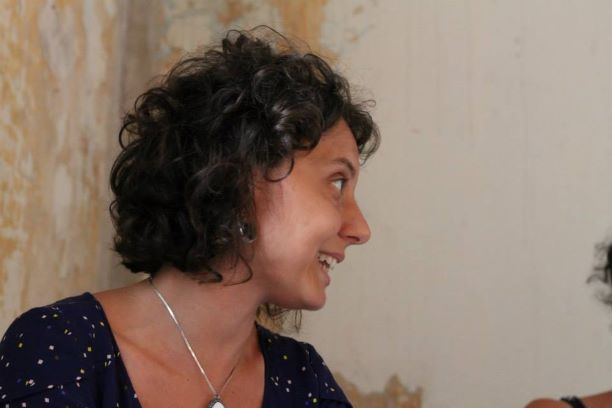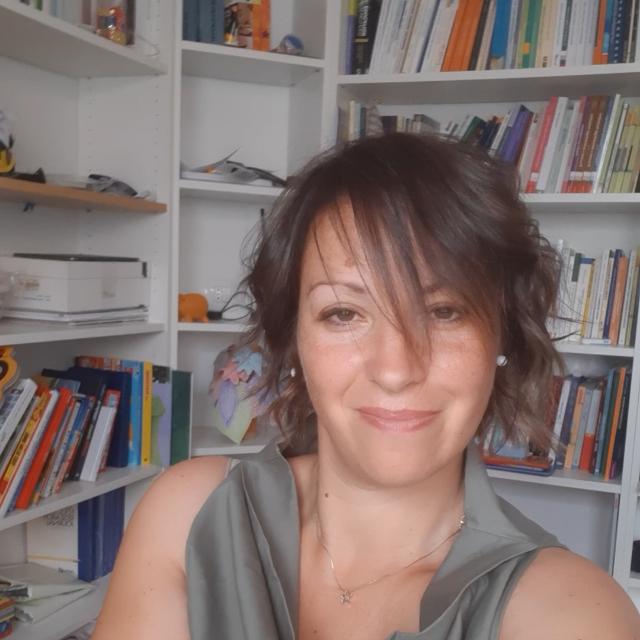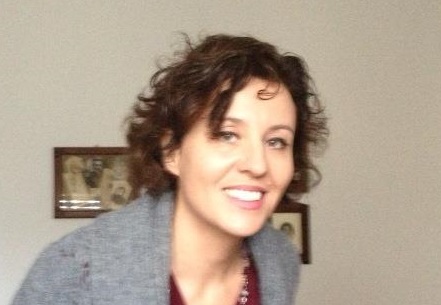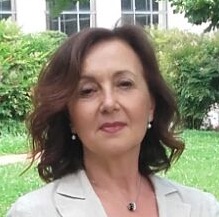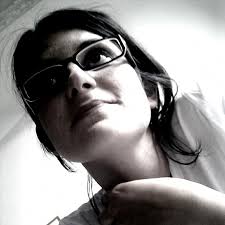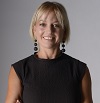Studying at the University of Verona
Here you can find information on the organisational aspects of the Programme, lecture timetables, learning activities and useful contact details for your time at the University, from enrolment to graduation.
Academic calendar
The academic calendar shows the deadlines and scheduled events that are relevant to students, teaching and technical-administrative staff of the University. Public holidays and University closures are also indicated. The academic year normally begins on 1 October each year and ends on 30 September of the following year.
Course calendar
The Academic Calendar sets out the degree programme lecture and exam timetables, as well as the relevant university closure dates..
| Period | From | To |
|---|---|---|
| Sem. 1A | Sep 23, 2019 | Oct 31, 2019 |
| Sem. 1B | Nov 11, 2019 | Jan 11, 2020 |
| Sem. 2A | Feb 17, 2020 | Mar 28, 2020 |
| Sem. 2B | Apr 6, 2020 | May 30, 2020 |
| Session | From | To |
|---|---|---|
| Sessione d'esame invernale | Jan 13, 2020 | Feb 15, 2020 |
| Sessione d'esame estiva | Jun 3, 2020 | Jul 25, 2020 |
| Sessione d'esame autunnale | Aug 24, 2020 | Sep 19, 2020 |
| Session | From | To |
|---|---|---|
| Sessione di laurea estiva | Jul 6, 2020 | Jul 11, 2020 |
| Sessione di laurea autunnale | Nov 2, 2020 | Nov 6, 2020 |
| Sessione di laurea invernale | Apr 7, 2021 | Apr 13, 2021 |
| Period | From | To |
|---|---|---|
| Festa di Ognissanti | Nov 1, 2019 | Nov 1, 2019 |
| Chiusura Ateneo | Nov 2, 2019 | Nov 2, 2019 |
| Festa dell'Immacolata | Dec 8, 2019 | Dec 8, 2019 |
| Vacanze di Natale | Dec 23, 2019 | Jan 6, 2020 |
| Vacanze di Pasqua | Apr 10, 2020 | Apr 14, 2020 |
| Festa della liberazione | Apr 25, 2020 | Apr 25, 2020 |
| Festa del lavoro | May 1, 2020 | May 1, 2020 |
| Sospensione delle lezioni | May 2, 2020 | May 2, 2020 |
| Festa del Santo Patrono | May 21, 2020 | May 21, 2020 |
| Sospensione delle lezioni | May 22, 2020 | May 23, 2020 |
| Festa della Repubblica | Jun 2, 2020 | Jun 2, 2020 |
| Vacanze estive | Aug 10, 2020 | Aug 15, 2020 |
Exam calendar
Exam dates and rounds are managed by the relevant Humanistic Studies Teaching and Student Services Unit.
To view all the exam sessions available, please use the Exam dashboard on ESSE3.
If you forgot your login details or have problems logging in, please contact the relevant IT HelpDesk, or check the login details recovery web page.
Should you have any doubts or questions, please check the Enrollment FAQs
Academic staff
 marialivia.alga@univr.it
marialivia.alga@univr.it
 erika.branchini@univr.it; erika.branchini@gmail.com
erika.branchini@univr.it; erika.branchini@gmail.com
 simona.carta@univr.it
simona.carta@univr.it
 marialuisa.costantino@univr.it
marialuisa.costantino@univr.it
 donato.desilvestri@univr.it
donato.desilvestri@univr.it
 laura.fontecedro@univr.it
laura.fontecedro@univr.it
Ganzerla Luca Giovanni Michelangelo
 lucagiovanni.ganzerla@univr.it
lucagiovanni.ganzerla@univr.it
 licia.landi@univr.it
licia.landi@univr.it

Migliorati Lorenzo
 lorenzo.migliorati@univr.it
lorenzo.migliorati@univr.it
 045802 8135
045802 8135
 maria.mori@univr.it
maria.mori@univr.it
 luca.odini@univr.it
luca.odini@univr.it
 alessandro.ongaro@univr.it
alessandro.ongaro@univr.it
 pieralberto.porcedducilione@univr.it; pierre_pordd@yahoo.it
pieralberto.porcedducilione@univr.it; pierre_pordd@yahoo.it
 045 8028732
045 8028732
 sara.riggio@gmail.com
sara.riggio@gmail.com
 mirela.tingire@univr.it
mirela.tingire@univr.it
 rosanna.vit@univr.it
rosanna.vit@univr.it
 barbara.zoccatelli@unitn.it
barbara.zoccatelli@unitn.it
Study Plan
The Study Plan includes all modules, teaching and learning activities that each student will need to undertake during their time at the University.
Please select your Study Plan based on your enrollment year.
1° Year
| Modules | Credits | TAF | SSD |
|---|
2° Year activated in the A.Y. 2020/2021
| Modules | Credits | TAF | SSD |
|---|
3° Year activated in the A.Y. 2021/2022
| Modules | Credits | TAF | SSD |
|---|
1 module to be chosen between the following| Modules | Credits | TAF | SSD |
|---|
| Modules | Credits | TAF | SSD |
|---|
| Modules | Credits | TAF | SSD |
|---|
1 module to be chosen between the following| Modules | Credits | TAF | SSD |
|---|
Legend | Type of training activity (TTA)
TAF (Type of Educational Activity) All courses and activities are classified into different types of educational activities, indicated by a letter.
Psychology of developmental disorders in infancy (2020/2021)
The teaching is organized as follows:
LABORATORIO DI PSICOLOGIA DEI DISTURBI EVOLUTIVI NELLA PRIMA INFANZIA
Credits
1
Period
See the unit page
Academic staff
See the unit page
Learning outcomes
Knowledge and understanding Module 1: Psychology of developmental disorders in infancy 1. To identify and explain the principal characteristics of atypical development in infancy in various areas (cognition, motor development, language and communication, socio-emotional development). 2. To analyze individual/contextual strengths and weaknesses in atypical development in infancy in educational settings. 3. Consider critically the relationships between the neuro-biological and the contextual factors that influence the developmental trajectories of infants' functions, skills and participation that can be considered precursors of various diagnoses (Developmental Language Disorder, Autism Spectrum Disorder, Intellectual Disability, Motor Coordination Disorder, ADHD). Module 2: Laboratory of psychology of developmental disorders in infancy 1. Promoting the practical use of knowledge acquired within the module of Psychology of developmental disorders in infancy. 2. Promoting of the ability regarding atypical development in infancy in educational contexts. 3. Promoting of the ability to apply acquired knowledge referring to linguistic, cognitive, and socio-emotional development. Module 3: Cognitive processes in infancy 1. To know and understand the main theoretical approaches for describing the cognitive processes in infancy and the methodological issues. 2. Identify and explain developmental and learning processes in infancy that can enhance or hinder the cognitive development in various educational contexts in infancy. Applying knowledge and understanding Module 1: Psychology of developmental disorders in infancy 1. To promote the ability to analyse individual development and difficulties in the context of the design of educational projects in infancy for promoting well-being and inclusion in Educational Services. 2. To know observational and assessment methodologies for evaluate atypical and at-risk development; 3. To know instruments and methodologies to design and implement educational programming in infancy for atypical development, particularly for promoting well-being and inclusion. Module 2: Laboratory of Psychology of developmental disorders in infancy 1. To analyse and choose the best instruments for observation, and assessment of the child development with evolutionary atypia, for educational programming in infancy. 2. To Design interventions to strengthen some competences and inclusive paths in educational contexts. Module 3: Cognitive processes in Cognitive processes in infancy 1. To analyse and choose the best instruments to observe and evaluate the cognitive development in infancy and in a specific context and individuate contextual facilitative factors. 2. To consider critically the bidirectional relationship between the individual and the contextual factors (familiar, social and cultural) to understand individual differences in cognitive development and to identify the risk factors in infancy. 3. To apply the knowledge gained through observation for to analyise developmental fragilities and to design personalized educational activities.
Program
Module 1: 1) Introduction. The principal theoretical, epistemological, methodological and educational issues in children’s language and social development in infancy. Distinctions between developmental delay and disorder 2) Linguistic, cognitive, socio-emotional and motivational aspects of children’s language and social development. 3) Language delay and disorder: definitions, classifications, theoretical models. Developmental Language Disorders. Observational procedures in educational and family contexts. Prerequisites and early indicators of language difficulties. Early intervention programs for language delay in nurseries. Attention and memory in language delay. 4) Language and learning in children with cognitive disabilities, autism spectrum disorders, Developmental Coordination Disorders, Attention Deficit Hyperactivity Disorders. Language and social development in deaf children. 5) Prerequisites and early indicators of learning disabilities: the problem of a screening procedure. Recent norms in diagnosis and educational programs. Support programs for families and educators. Well-being and inclusion in nurseries.
Module 2: 1. To analyse and choose the best instruments for observation, and assessment of the child development disorders for educational programming in infancy. 2. To Design interventions to strengthen some competences and inclusive paths in educational contexts. 3 To discuss cases of cognitive and sensory disabilities, autism spectrum disorders, Developmental Language Disorder, ADHD; 4. To analyze prerequisites and early indicators of delays and difficulties; 5. To Design support programs for families and educators.The activity included in the laboratory will propose active didactic strategies, based on collaborative learning, problem solving and peer discussion.
Bibliography
| Author | Title | Publishing house | Year | ISBN | Notes |
|---|---|---|---|---|---|
| Caselli, M.C., & Capirci, O. (a cura di) | Indici di rischio nel primo sviluppo del linguaggio | 2002 | |||
| Bonifacio, S. & Zmarich, C. | L'intervento precoce nel ritardo di linguaggio. Il modello INTERACT per il bambino parlatore tardivo. | Milano: Franco angeli | 2010 | ||
| Valentina Pennazio | ll nido d'infanzia come contesto inclusivo. Progettazione e continuità dell'intervento educativo per il bambino con disabilità nei servizi educativi per l'infanzia | Franco Angeli | 2017 | ||
| Zanobini, M. & Usai, M.C. | Psicologia della disabilità e dei disturbi dello sviluppo (Edizione 8) | Milano: Franco Angeli | 2011 | ||
| Macchi Cassia, V., Valenza, E., & Simion, F. | Lo sviluppo della mente umana. Dalle teorie classiche ai nuovi orientamenti. | Il Mulino | 2012 | Capitoli I, II, III, IV, V, VII, IX | |
| Vicari, S. & Caselli, M.C. | Neuropsicologia dell'età evolutiva | Bologna: Il Mulino | 2017 |
Examination Methods
The exam:
1) Objectives and content:
The students will demonstrate that they:
are familiar with current knowledge in the field of disabilities and special educational needs– theoretical and methodological –and its application in infancy;
have understood the main stages and developmental process, in order to observe and project for children with disabilities and special educational needs in various contexts in infancy;
can discuss their knowledge using technical and critical language, identifying and evaluating the relevant concepts and methodological issues; have understood and can deploy in appropriate language the main arguments in developmental psychology, identifying and critically selecting the relevant concepts and methodologies;
can critically analyse cases studies and the experience discussed, using bibliographical references appropriately.
2) Procedures and evaluation:
There will be a 2-hour written exam with four questions: three on the principal theoretical approaches and on the various disabilities and special educational needs and one discussing a case. Each question will be given a mark out of 30 and the final mark will be the average of the four.
Module 2: The activity included in the laboratory will result into the production of a project. During the laboratory, the teacher will explain how to elaborate the project.
Type D and Type F activities
Modules not yet included
Career prospects
Module/Programme news
News for students
There you will find information, resources and services useful during your time at the University (Student’s exam record, your study plan on ESSE3, Distance Learning courses, university email account, office forms, administrative procedures, etc.). You can log into MyUnivr with your GIA login details: only in this way will you be able to receive notification of all the notices from your teachers and your secretariat via email and soon also via the Univr app.
Graduation
Documents
| Title | Info File |
|---|---|
|
|
pdf, it, 99 KB, 13/10/23 |
|
|
pdf, it, 101 KB, 10/04/24 |
List of theses and work experience proposals
| theses proposals | Research area |
|---|---|
| Ambienti e contesti di lavoro con minori | Various topics |
| Analisi dei personal network di sostegno | Various topics |
| comunicazioni relative alla tesi | Various topics |
| Il teatro come contesto educativo | Various topics |
| I processi di globalizzazione culturale nella società contemporanea | Various topics |
| La social network analysis applicata allo studio dei contesti educativi | Various topics |
| L'educatore ed i progetti europei | Various topics |
| L'impegno associativo in ambito educativo | Various topics |
| Politiche sociali e contesti educativi | Various topics |
| Progetti di collaborazione con le istituzioni scolastiche | Various topics |
| PROPOSTE TESI AMBITO GEOGRAFICO | Various topics |
| Scuola e capitale sociale | Various topics |
Linguistic training CLA
Gestione carriere
Student mentoring
Practical information for students
Documents
| Title | Info File |
|---|---|
|
|
pdf, it, 325 KB, 02/05/23 |
|
|
pdf, it, 212 KB, 02/05/23 |
|
|
pdf, it, 131 KB, 02/05/23 |
Stage e Tirocini
Le ulteriori attività formative (crediti F) sono interamente coperte dall’attività di tirocinio “indiretto” (1 cfu) da svolgersi nel secondo anno e di tirocinio “diretto” (14 cfu) da svolgersi presso enti convenzionati per un numero complessivo di 15 cfu (375 ore). Chi è iscritta/o al curriculum servizi per l’infanzia è tenuta/o a svolgere il tirocinio presso nidi e servizi per la prima infanzia per almeno il 50% delle ore.
Il tirocinio professionalizzante (375 ore, pari a 15 cfu), è obbligatorio sia nella sua forma diretta che indiretta.
Il tirocinio indiretto, della durata di 25 ore a frequenza obbligatoria al 75%, si svolge in Università per 20 ore e in forma di lavoro individuale per 5 ore e consiste in un accompagnamento iniziale delle/degli studenti da parte dei tutor attraverso un percorso formativo dotandoli di conoscenze e strumenti adeguati a osservare, comprendere e rielaborare criticamente l’esperienza di tirocinio nei servizi educativi e ad affrontare il tirocinio negli enti con metodo e consapevolezza. Il percorso, da attuare in gruppi da 20-25 persone sotto la supervisione di un tutor, risponde alle esigenze costantemente espresse sia dalle/dagli studenti stessi sia dalle parti sociali che dai referenti degli enti convenzionati.
Il tirocinio diretto si propone di raggiungere i seguenti obiettivi:
- fare esperienza diretta di attività professionali, che richiedono un livello di preparazione al lavoro educativo;
- approfondire in particolare il rapporto tra preparazione teorica, acquisita mediante lo studio, ed esperienza pratica, tra mondo del sapere e della cultura e mondo del lavoro e delle professioni;
Al termine del tirocinio diretto lo studente deve presentare una relazione scritta, nella modalità concordata con il tutor accademico.
Nuove Linee Guida per il tirocinio di Scienze dell'educazione.
- Tutte le informazioni in merito agli stage per futuri studenti sono disponibili alla pagina Stage e tirocini.
- Tutte le informazioni in merito agli stage per studenti iscritti sono pubblicate in MyUnivr - come fare per - stage e tirocini.
- Tutte le informazioni in merito agli stage per le aziende sono disponili alla pagina Stage e tirocini per azienze.
Documents
| Title | Info File |
|---|---|
|
|
pdf, it, 302 KB, 16/07/21 |
